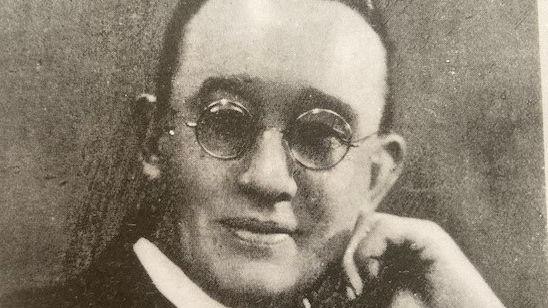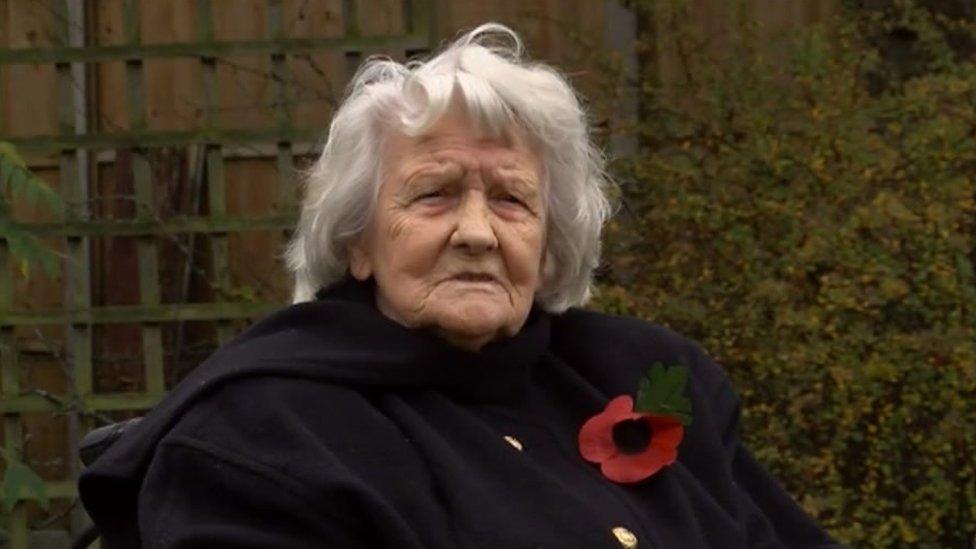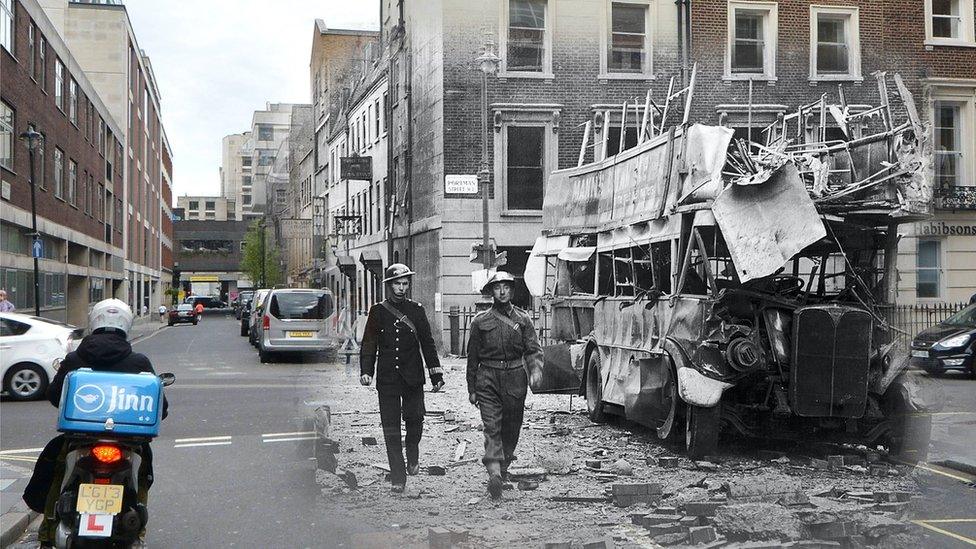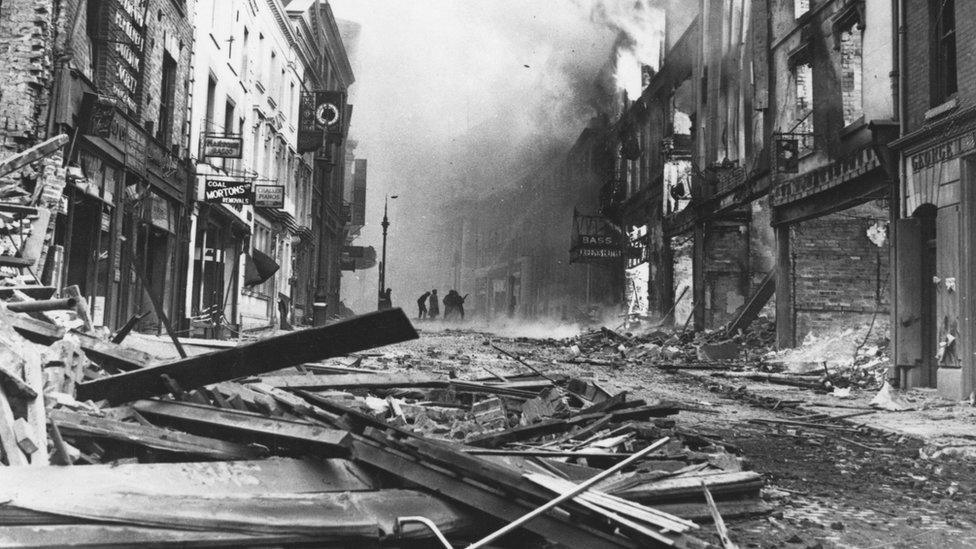Blitz survivor remembers 'air foul with cordite'

Gordon Talbot has spoken publicly for the first time about when the Blitz of Coventry claimed hundreds of lives
- Published
A 97-year-old man has told how his family's air-raid shelter caved in on the night of the Coventry Blitz, leaving them buried before his father dug them out.
"The air was foul with cordite, bonfire-burning cordite, and I can taste it now," said Gordon Talbot, speaking publicly for the first time about the night of 14 November 1940, when his house was destroyed.
Mr Talbot, who went on to join the RAF in 1946, shared his memories at the Midlands Air Museum, where he has volunteered for more than 25 years.
He relived that night as the city marked 85 years since the raids, whose official death toll was 554, external but the figure could have been higher, since many people still remain unaccounted for.
An anniversary service and vigil, external are taking place at Coventry Cathedral on Friday, including contributions from Coventry schools and faith leaders, and also guests from Germany.
Two sirens will sound at 18:55 GMT to mark the exact time of the air raid in 1940. That will be followed by a two-minute silence.

Mr Talbot joined the RAF in 1946 when he was old enough
Codenamed Moonlight Sonata, the raid lasted 11 hours and involved nearly 500 Luftwaffe bombers. Coventry was targeted because it was a major centre for war production.
"I was never frightened, how strange that was. I never felt that I was in danger," Mr Talbot said, remembering how it was to be an 11-year-old, living in the city at the time.
'You never slept'
He told how, as the sirens sounded, he and his family went into their shelter in the bottom of the garden.
"You never slept, because of the noise that was going on," he said.
"This actual landmine landed close and destroyed the house.
"And at that point in time, the entrance to the shelter caved in and, momentarily, you could say we were buried, but father being a miner, he soon dug us out - put it that way - from the inside."

Mr Talbot later became an engineer
More than 43,000 homes, just over half the city's housing, were damaged or destroyed in the raid.
After the all clear was sounded, Mr Talbot said: "My first words were, 'Where is my house, dad?'
"That was the strange thing. Where the house was, there was this heap of rubble.
"The cathedral, you could see, was burning. You could see everything was burning at that point."

Mr Talbot has volunteered at the Midlands Air Museum for more than 25 years
Coventry lost its medieval cathedral, the church of St Michael, and its ruins now stand next to Coventry's new cathedral, built in the 1950s.
The ruins now stand as a symbol of international peace and reconciliation - a principle Mr Talbot hopes will live on, with future generations.
"I'm hoping today's generation do not have to go through what we went through then," he said.
Among the activities taking place to mark the anniversary, people have been building a temporary landmark inspired by the ruins of the city's old cathedral - made out of cardboard boxes.
Amid warnings of heavy rain, the Coventry City Council said the project was still expected to take place on Saturday, but the weather would be monitored throughout.
Get in touch
Tell us which stories we should cover in Warwickshire
Follow BBC Coventry & Warwickshire on BBC Sounds, Facebook, external, X, external and Instagram, external.
Related topics
- Published1 day ago

- Published14 November 2020

- Published7 November 2020

- Published13 November 2015
